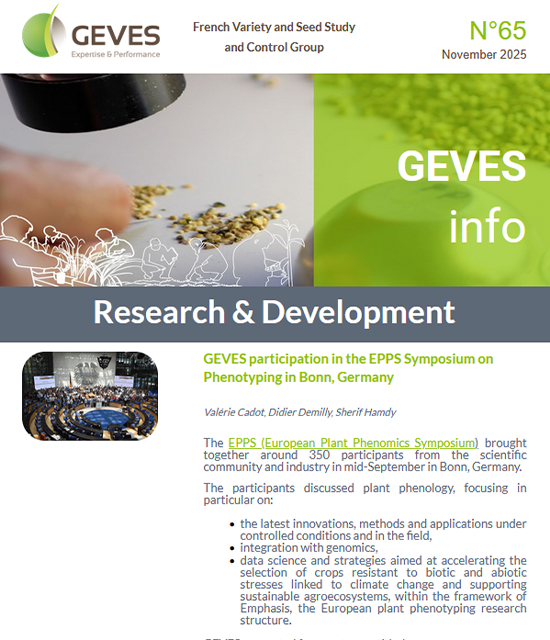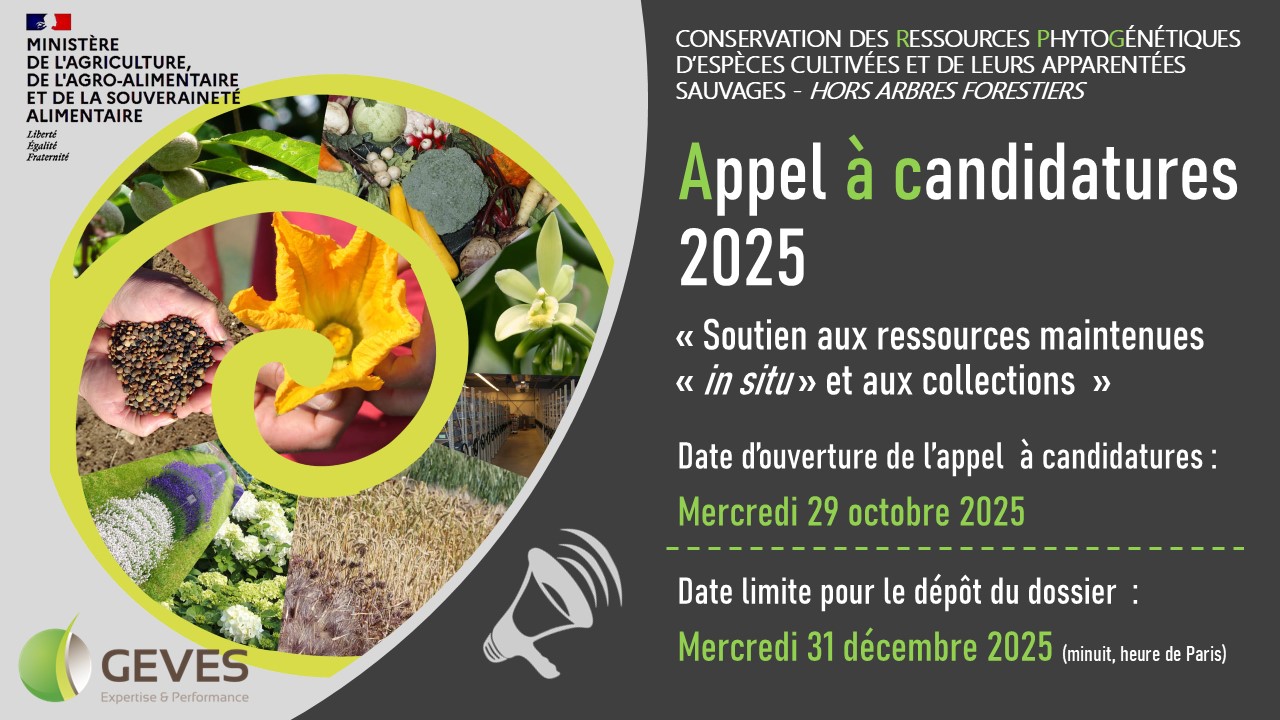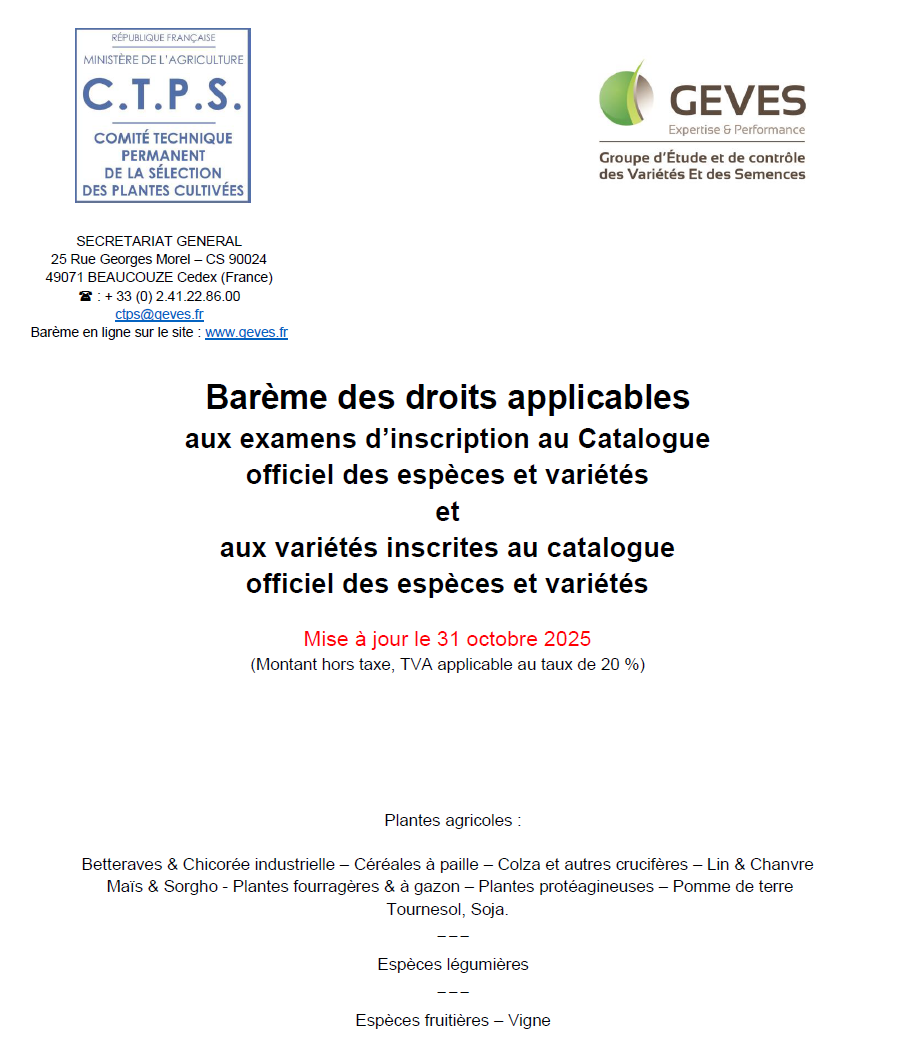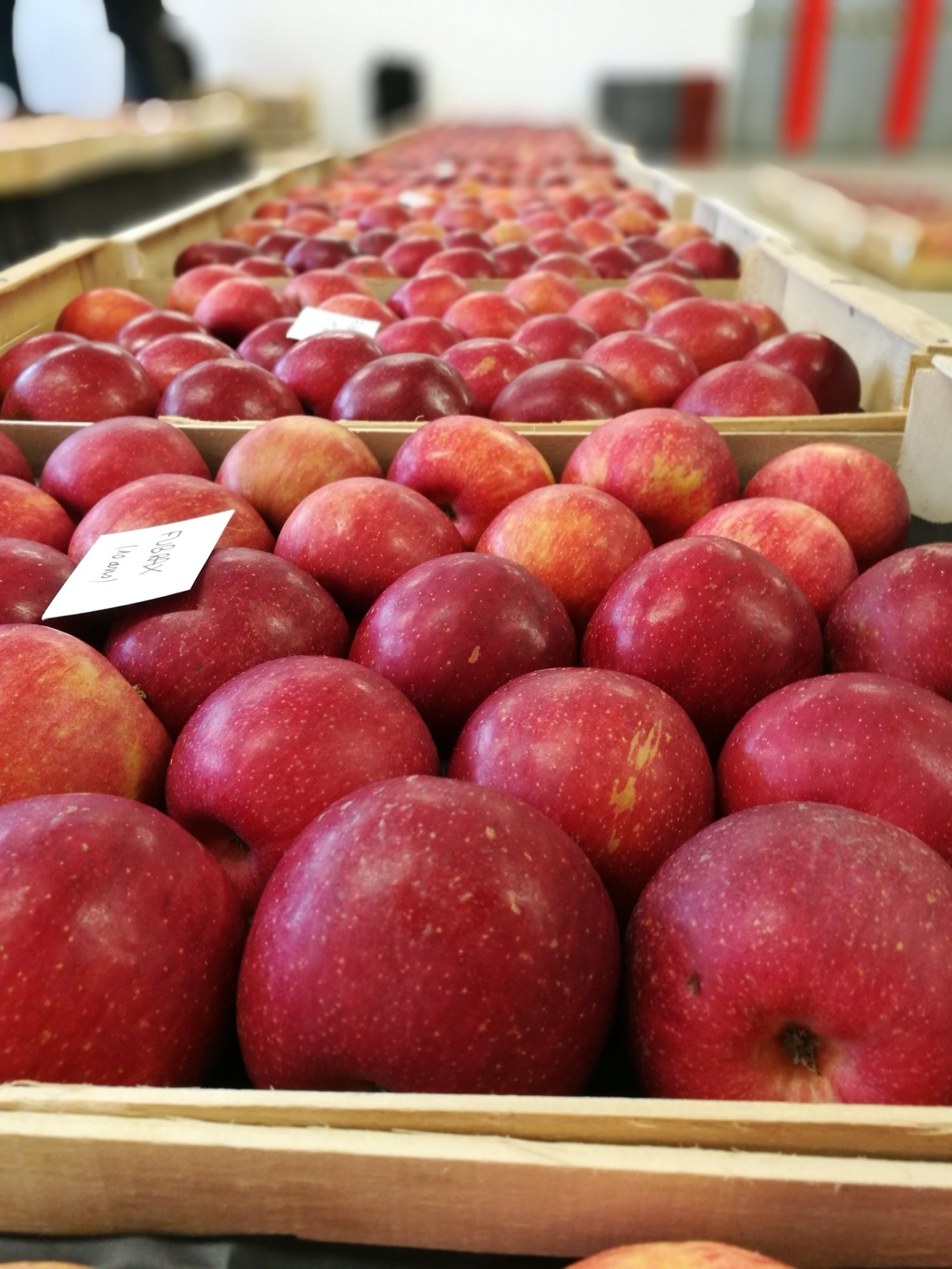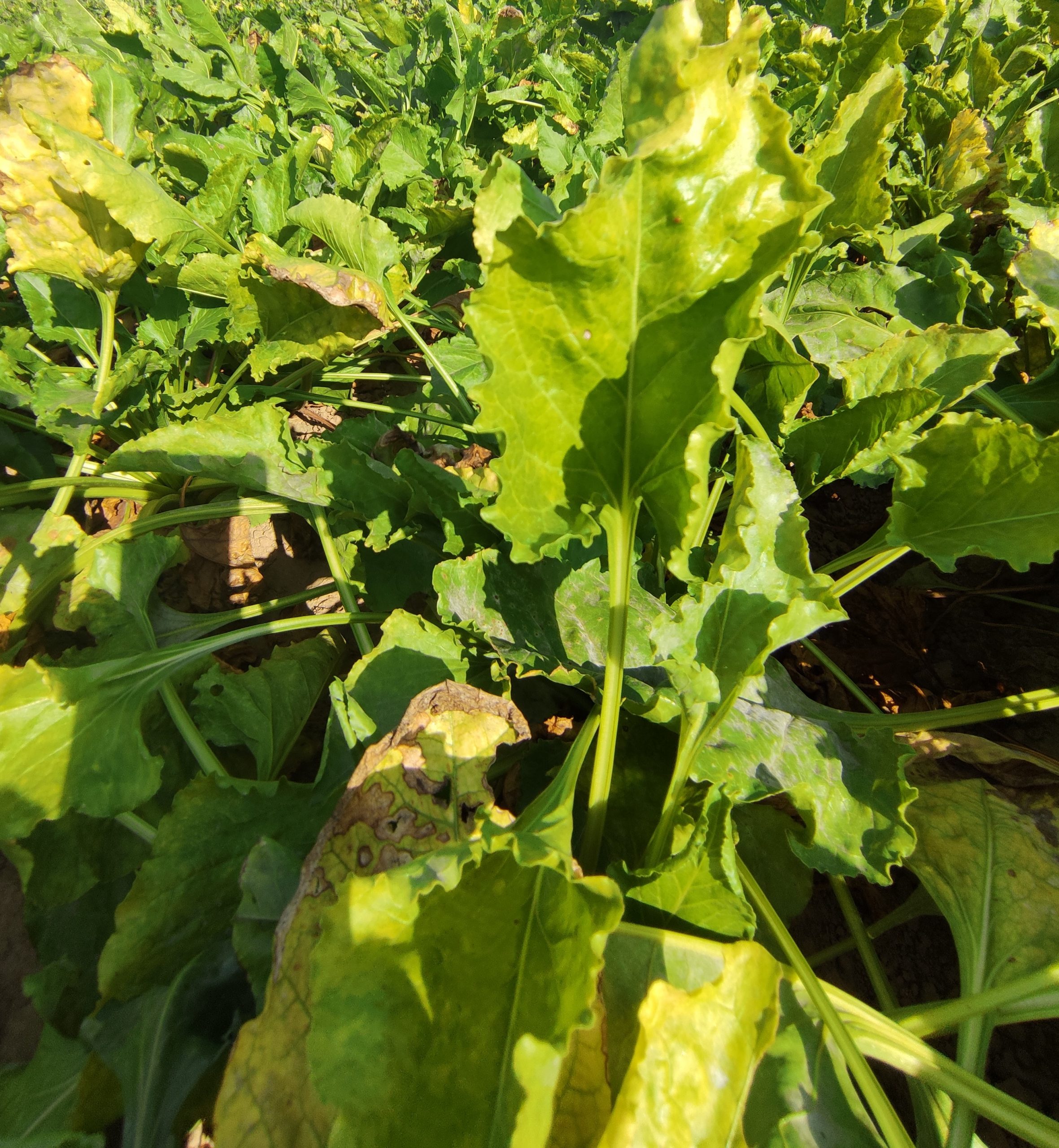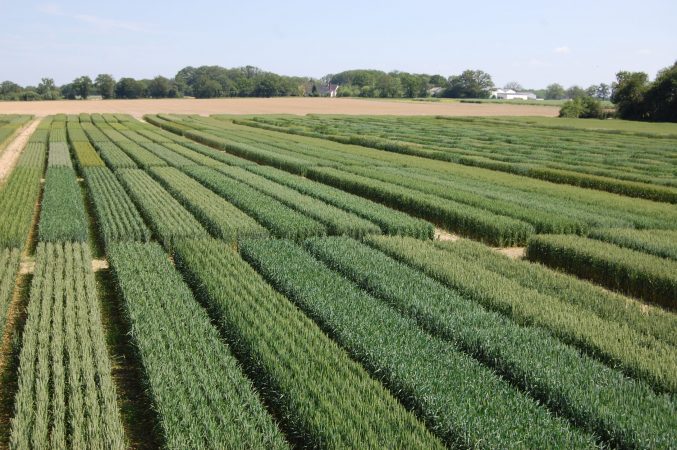
Focus on the varieties expertise news
Fabien Masson, Director of the Variety Study Sector at GEVES, presents the activities dedicated to the official evaluation of varieties at the beginning of October:
We are entering the final phase of the varietal studies: end of field trials, launch of harvest quality analyses at GEVES laboratories or partner laboratories, and production of summaries of results for:
- the Ministry of Agriculture and the CTPS for registration in the Official Catalogue,
- the CPVO and INOV for variety protection,
- other examination offices (DUS for registration and/or protection),
- the DQCO (Directorate of Quality and Official Control) of SEMAE for variety controls in the context of certification.
85% of the variety studies produced by GEVES are carried out within the framework of the CTPS for the registration of new plant varieties in the official French Catalogue.
In addition to producing results, GEVES also plays a coordinating role in exchanges between different CTPS sections and expert groups (13 CTPS section secretariats run by GEVES, as well as the general secretariat) and is a strong force for proposals for the development of registration systems (testing procedures and decision-making rules), particularly on the basis of its R&D work.
The aim of GEVES’s R&D activities is to adapt official variety assessment systems to respond to agroecological and climate change challenges, and also to improve the efficiency of our assessment procedures.
Examples of R&D work:
- To better evaluate varieties against climate change, we are currently working on implementing methods and tools for envirotyping our VSCU evaluations to better describe the environmental conditions (soil and climate data) in which varieties are tested. This work was at the heart of the INVITE project and will be continued in other projects to make it operational in evaluation systems. Among other things, envirotyping will make it possible to produce more information on the adaptation of varieties to different types of stress and also to consolidate and optimise trial networks.
- For the efficiency of our DUS trials, genotyping is useful for selecting varieties from the reference collection and limiting field comparisons between new varieties and varieties from the collection. Already implemented for maize, sorghum and spring barley, GEVES is currently working on rolling out genotyping with a view to managing the reference collection for hydrangea, rapeseed and lettuce (CPVO projects). Projects are being set up or considered to extend this use of genotyping to soft wheat and cocksfoot.
GEVES involvement at European and international level
This autumn is a busy period for international organisations, particularly with regard to developments in international protocols for DUS, to which GEVES contributes significantly through UPOV. At the UPOV Technical Committee meeting (20 and 21 October), GEVES will present its experience in the use of genotyping and digital phenotyping for DUS.
At the CPVO, autumn is the time for CPVO meetings by species group, in which GEVES experts participate to discuss protocol developments. In September, GEVES contributed to the CPVO working groups set up as part of its strategic analysis.
Finally, at European level, the future PRM regulation (new European regulation on certification and registration) is currently being drafted, with GEVES providing technical support to the French Ministry of Agriculture.
In summary, the job of variety evaluation at GEVES involves impartially conducting official studies and implementing methodological changes in line with our values and GEVES Ambition 2030, in support of public policy.

